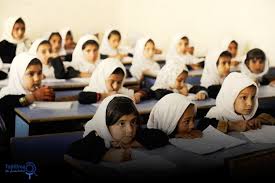The importance and necessity of Afghan girls’ education
Girls’ education in Afghanistan is important from various social, economic, cultural and human rights aspects and can contribute to fundamental transformation in the society. In the following, some of the most important reasons for the importance and necessity of girls’ education in Afghanistan will be discussed:
-
Human rights and social justice
• Right to education: Education is one of the basic human rights that must be guaranteed for everyone, including girls. Ignoring this right is a clear violation of social justice and gender equality.
• Individual empowerment: Education allows girls to be aware of their rights and resist discrimination and inequality. -
Social and economic development
• Economic growth: girls’ education can help to increase the skilled workforce in the society and cause the country’s economic growth. Educated women directly and indirectly play an effective role in the economy.
• Poverty reduction: Girls’ education allows them to access better job opportunities and increase the family’s income, which leads to the reduction of poverty in the society. -
Health and family health
• Reduced maternal and child mortality: Educated women can better access health and medical care and gain more information about their health and that of their families.
• Improving children’s nutrition and upbringing: educated mothers usually perform better in raising their children and providing them with proper nutrition. This issue has a positive effect on the health of the future generation. -
Impact on future generations
• Education of children: Educated mothers play an important role in raising and educating children. Women’s education can lead to the increase of literacy and awareness of the next generations.
• Promoting the culture of education: Educated women as role models can spread the culture of learning and education in the family and society. -
Establishing peace and security
• Reducing violence: Girls’ education can help reduce violence and discrimination against women in society and increase peace and social solidarity.
• Increasing social participation: Educated women play a more active role in political and social decision-making and can contribute to the peace and progress of society. -
Cultural and social changes
• Combating false traditions: girls’ education helps to change traditional attitudes and promote a culture of respect for women.
• Early marriages: Educated girls are less exposed to forced and early marriages because they have more opportunities for advancement.
Obstacles to girls’ education in Afghanistan
- Cultural and social restrictions: traditional beliefs and gender discrimination are the main obstacles to girls’ education.
- Lack of educational infrastructure: lack of schools, female teachers and proper facilities in many regions of the country.
- Economic poverty: Many families do not have the financial ability to support their daughters’ education.
- Insecurity and war: poor security conditions have prevented girls from attending schools.
Strategies to improve girls’ education
- Increasing public awareness: conducting awareness campaigns to change negative attitudes about girls’ education.
- Investing in education: building more schools, training female teachers and providing educational facilities.
- Financial support for families: providing financial aid and scholarships to encourage families to send their daughters to school.
- Strengthening security: creating safe environments for girls to study in war-torn and rural areas.

